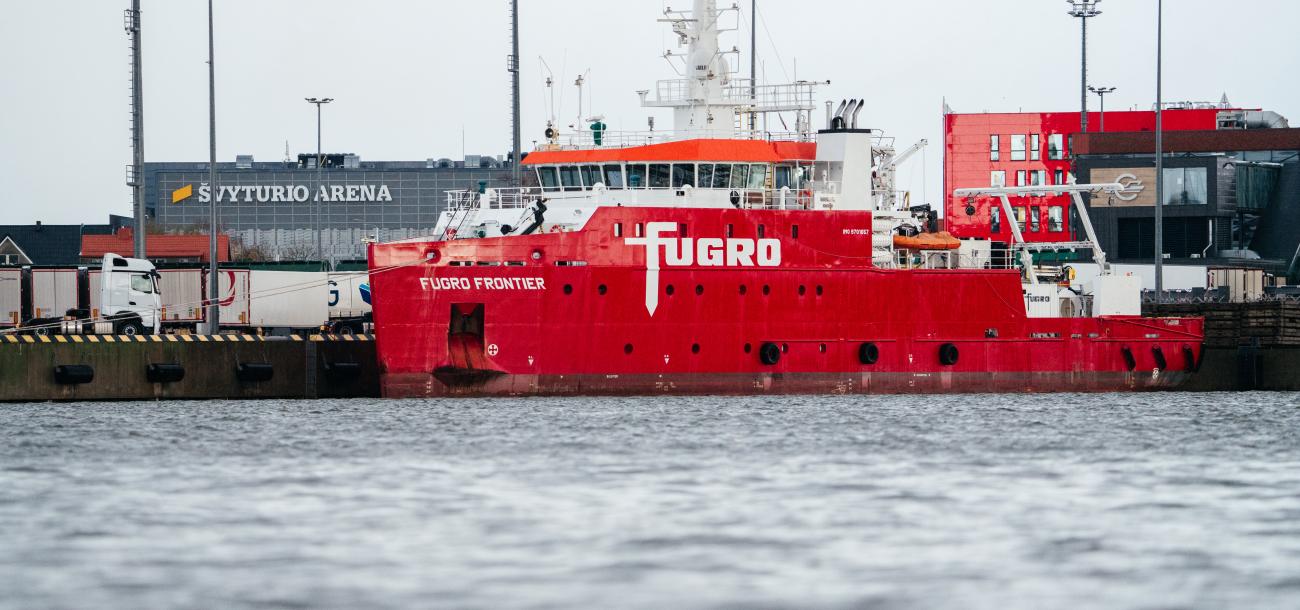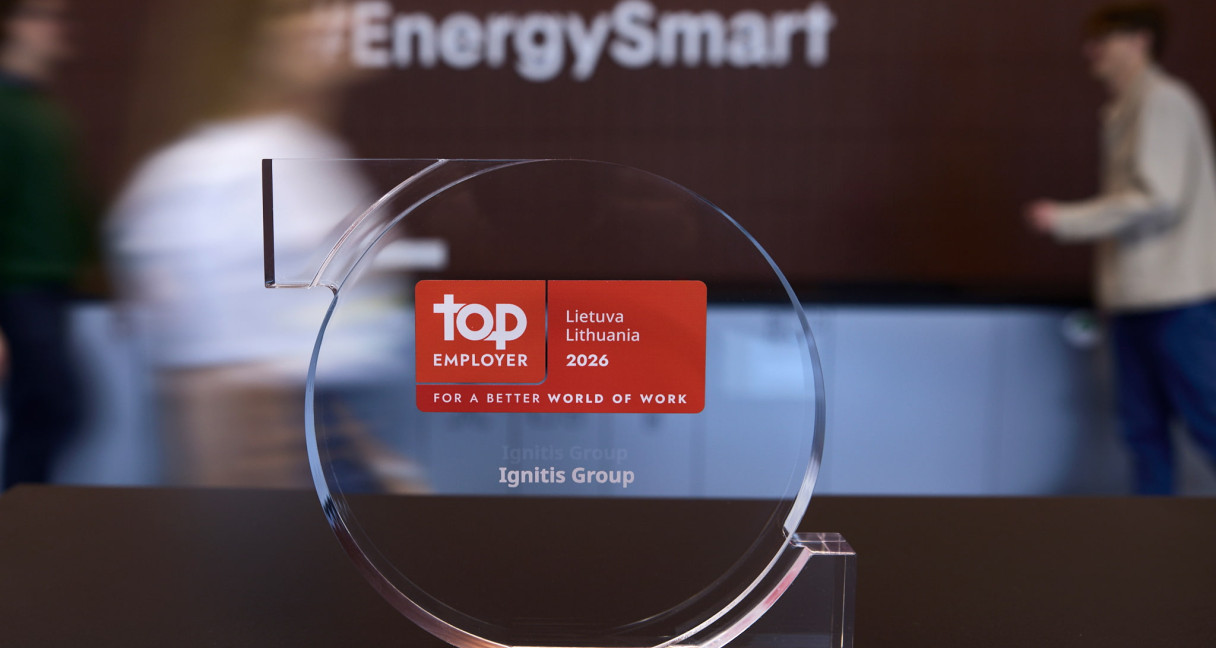Fugro supports Ignitis Renewables with seabed survey for Lithuania’s first offshore wind farm
Ignitis Renewables, an international green energy company, has awarded Fugro a contract to conduct a geophysical survey at Lithuania's first offshore wind farm site. This critical step in the project's development aims to enhance the understanding of seabed conditions, which will inform the location, construction and design of future wind turbines at the Baltic Sea.
Fugro is the world’s leading specialist for collecting and analysing comprehensive information about the Earth and the structures built upon it. Fugro's designated geophysical survey vessel, the Fugro Frontier, is currently on-site in the Baltic Sea surveying the 120 square-kilometre area, collecting 2D ultra-ultra high-resolution (UHRS) sub-surface data, as well as bathymetry, sidescan sonar, and magnetometer data.
The 2,000 survey line kilometres of high-quality data collected will be crucial for characterizing the site and identifying potential risks to an offshore wind farm development in this area. These insights will inform the selection of future geotechnical investigations and help create a detailed ground model that Ignitis Renewables along with their partners will use to determine the optimal wind turbine foundation design and locations.
“We are pleased to partner with Fugro, one of the leading authorities in the field, as the information gathered from these surveys brings us another step closer to making the first offshore wind farm in Lithuania a reality. The geophysical data acquisition is a critical milestone in our preparatory phase, laying the groundwork necessary to initiate construction on schedule,” stated the Head of Offshore Development at Ignitis Renewables Vytautas Rimas.
“Our commitment to delivering comprehensive, reliable geo-data, combined with our expertise in challenging geology and offshore conditions, will help derisk future phases of this development. We look forward to contributing to the success of Lithuania's clean energy goals and to continue our tradition of providing valuable services to our clients,” said Alvydas Uždanavičius, Fugro’s Lithuania Country Manager.
In addition, Ignitis Renewables is also cooperating in analysis of seabed investigations with specialist engineering and design consultancy, Gavin & Doherty Geosolutions (GDG), a Venterra Group company, and local partners in Lithuania Geobaltic.
Scheduled to begin operations by 2030, the 700 megawatt (MW) offshore wind farm will generate up to 3 terawatt-hours (TWh) of electricity annually, which would meet up to a quarter of Lithuania's current electricity demand.
The maritime area in the Baltic Sea designated for the first offshore wind farm is at least 37 km away from the shore, and approximately 60 km away from the Port of Klaipėda. The depth at the maritime area ranges from 28 to 48 metres, and the average annual wind speed there is around 9–10 m/s. The number of wind turbines to be erected there will range from 35 to 50, with a maximum height of around 300–350 metres. These parameters will depend on the findings of studies, the environmental impact assessment, adopted technologies and other conditions.
Offshore wind is much more efficient and reliable for generating electricity compared to onshore wind. At sea, the wind is not obstructed by natural barriers such as trees, mountains or buildings. This makes electricity generation more efficient and reliable. Offshore wind is an especially reliable energy source as green electricity can be generated even when wind speed on the shore seems low.
Based on the currently available information, the capacity, location of the wind turbines, their distance from the shore as well as the sea depth are all suitable for wind energy development and corresponds to the scope and conditions of other offshore wind farm projects in Europe.





